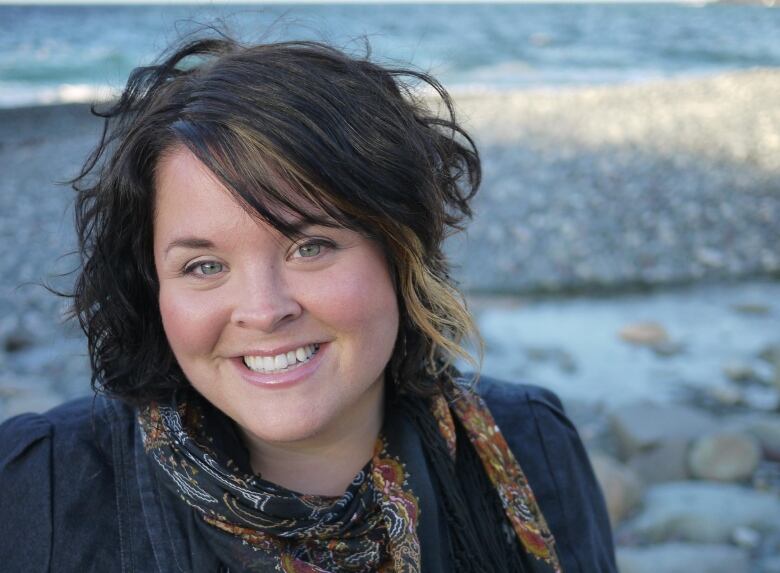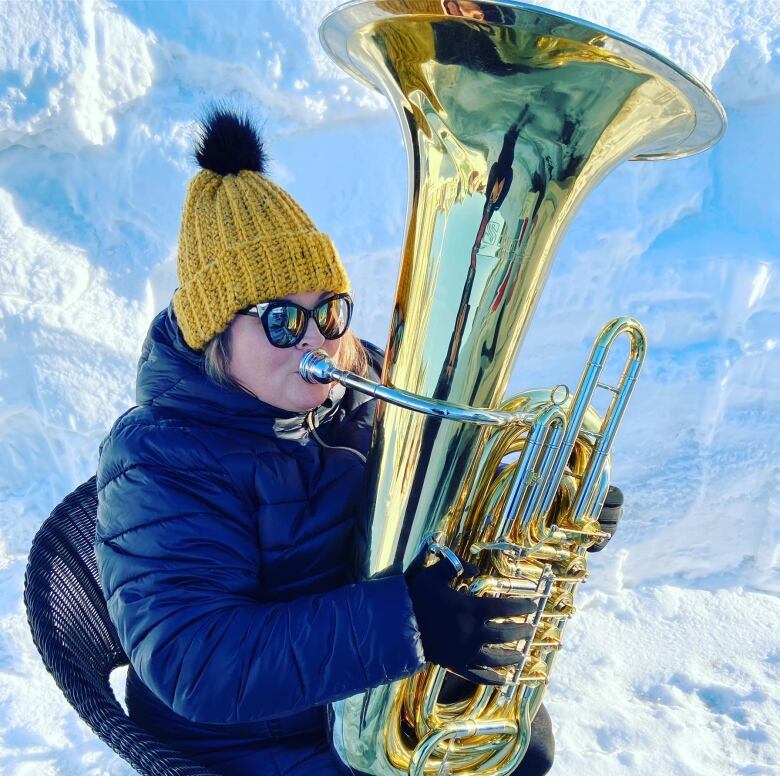Self-care in the time of coronavirus: Here's what this instructor knows

The spread of the novel coronavirus has created huge challenges for people in the medicalfield and those working in high-risk jobs, as well as for those whose needs may besidelined by our efforts to contain the pandemic.
For many, though, the primary challenge is how to live under the constraints of just staying home.
In January of this year, Catherine Tansley, 39, a longtime teacher and musician,opened her new counselling practice at Be Well Therapeutics on Pippy Place in St.John's. This achievement had come after years of study, interning, and CCPAcertification.
By the end of February, her list of clients was growing. She had plans totake a year off from teaching next year to grow her counselling business and to pursue a dream of travelling. Thenin March, the outbreak of COVID-19 on the island forced herto close her practice.
"Things change and we have to pivot," she said of her decision topostpone her long-awaited year off.

Managing mental health
The shutdown compoundedthe stresses of the winter in particular. Tansleypoints out that many Newfoundland and Labrador residents, particularly in the easternregion of the island, werestill reeling from January's "Snowmageddon" and state of emergency.
"We just got out of a week like this lineups around supermarkets, the roads not cleared," she said.
While essential workers facetheir own share of challenges, many people have foundthemselves with no job to go to, feeling helpless when charged with the task of simply staying home to prevent the virus spreading.
"A lot of us cope well with life, we haveresiliency, and a lot of that [relies on] other people and other things we can't do rightnow," said Tansley.
All of our nervous systemsare basically working on overload, so that's why everyone is so exhausted and we're so tired and we can't focus.- Catherine Tansley
Tansley points out many folks are experiencing added anxiety, simply through indecision around how best to use their downtime.
"We're all home, glued to technology in order to stay connected," she said."We're getting crazy mixedmessages right now, of 'stick to your normal routine,' and then you're getting othermessages, 'You don't have to stick to your routine.'"
Tansley, who used her downtime during the January shutdown to complete a counselling course on anxiety, found comfort at homeslowly working on a jigsaw puzzle, a change of pace from her life, pre-COVID.
Reframingself-care
Acknowledging that every individual is experiencing the pandemicin their own way, Tansley offers some suggestions for how we all might work with our anxiety duringthese times.
"Our normal self-care routines that work well for us, we might not be able to do right now," she said, noting that many of us go outside our homes and interact with other people to meet our self-care needs.
Tansley suggests that we seek ways to reframe self-care that fit within our new boundaries. "Cooking this meal is a form of self-care for me right now, because I'm creating, I'm nurturing my body with healthy things or with chocolate chips!"
She suggests rather than trying to look to the future, it's good to be present in themoment. "I know it's vague to say it that way," Tansley said. "The anxiety [we feel] ispartly fear of the future, of the weeks and months ahead of us."

She explains that manyof us are having trouble thinking or planning for the future. "All of our nervous systemsare basically working on overload, so that's why everyone is so exhausted and we're so tired and we can't focus."
Tansley emphasizes that the mere act of making a decision can help mitigate anxiety,because it gives us a sense of power over our circumstances. "We have control overour thoughts," she said, "but we also have control over our actions and what we do withour time."
She says it's not important whether we use our downtime to writea novel or to binge watch Tiger King. What's important is that we have the choice,even if that choice is "today I'm going to do nothing."
An opportunity for growth
Tansley points out that,for many, the pandemicwill be a time when long-buriedmemories and emotions may emerge.
"A lot of us do have coping mechanisms, andwe're not able to use them right now," she explained. Some of these coping strategies may enable us to ignore some deeper issues. Sodoes this mean we shouldn't fear the negative feelings?
"Try not to escape from the moment," Tansley said, explaining thatbeing forced to face some of our emotions and feelings may facilitate growth andhealing of deeper issues.
AsTansley's career goals, she mourned the fact that her plans had been curtailed.
Like other businesses, though, she has resumed her office practice, and is adjusting to the new normal.












_(720p).jpg)


 OFFICIAL HD MUSIC VIDEO.jpg)
.jpg)



























































































